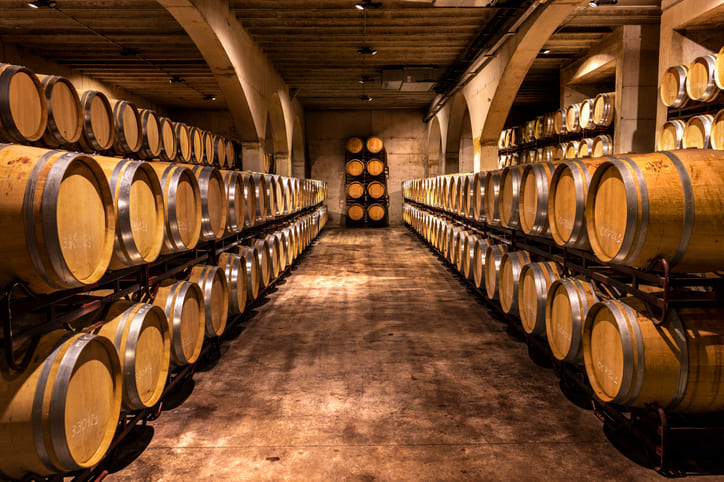From brandy to vodka: A guide to all types of spirits
Table of contents
- What is the definition of a distilled spirit?
- The difference in terminology - spirit vs liquor
- What are the most popular types of spirits?
- The main types of spirits
- Ingredients that influence types of spirits
- Key things to know about transporting spirits
- Hillebrand Gori specialises in all types of spirits
Spirits encompass a broad spectrum of alcoholic beverages, including rum, vodka, whiskey, gin, tequila, brandy, and more. Different types of spirits offer their own distinct flavours, production methods, and cultural associations, making them popular choices in various cocktails. In this overview, we'll delve into the world of spirits, exploring their various types and how to transport them.
What is the definition of a distilled spirit?
Spirits, also known as distilled spirits or hard liquor, are beverages produced by distillation of fermented grains, fruits, or vegetables. Unlike beer or wine, which are fermented and typically not distilled, spirits undergo a distillation process that concentrates their alcohol content. This process results in beverages with higher alcohol by volume (ABV) percentages, ranging from around 40% to over 70%.
The difference in terminology - spirit vs liquor
While the terms "spirit" and "liquor" are often used interchangeably, they can have slightly different connotations depending on context. In general, spirits refer to a broader category of distilled alcoholic beverages, including a variety of specific types such as whiskey, vodka, and rum. On the other hand, "liquor" may sometimes be used more colloquially to refer to any alcoholic beverage with a high alcohol content, including spirits as well as liqueurs.
What are the most popular types of spirits?
According to Statista.com, spirits make up about a third of the worldwide alcoholic beverage market. Whiskey is the best-selling type of spirit with a global market value of $81.6 billion in 2022. Vodka comes in a distant second with a market size of $41.45 billion. The world’s largest spirits market is in China, where sales exceeded $166 billion in revenue in 2023.
The main types of spirits
The world of spirits is vast and diverse, with numerous varieties available to suit different tastes and preferences. Some of the most prominent types of spirits include:
- Rum
- Vodka
- Whiskey
- Gin
- Tequila
- Brandy
Ingredients that influence types of spirits
The flavour profile of a spirit is influenced by the ingredients used during production. These ingredients can vary widely, from grains and sugarcane to botanicals and fruits, each contributing unique characteristics to the final product.
Grains
Grains such as barley, corn, rye, and wheat are commonly used in the production of whiskey and vodka. The choice of grains, along with the milling and mashing process, affects the flavour and texture of the spirit.
Sugarcane
Sugarcane is the primary ingredient in rum production, providing sweetness and depth of flavour. The type of sugarcane byproduct, whether molasses or sugarcane juice, influences the final taste of the rum.
Agave
Agave is the key ingredient in tequila production, contributing to its distinctive earthy and vegetal notes. The quality of the agave, along with the region and ageing process, determines the flavour profile of the tequila.
Botanicals
Botanicals such as juniper berries, coriander, citrus peels, and herbs are used in the production of gin and other types of spirits to impart flavour and aroma. The botanical blend, as well as the distillation method, influences the overall character of the gin.
Fruits
Fruits, particularly grapes, are utilised in brandy production, lending their natural sweetness and acidity to the spirit. The grape variety, terroir, and ageing conditions play a significant role in shaping the flavour profile of the brandy.
Key things to know about transporting spirits
Transporting spirits requires careful attention to regulations, safety protocols, and logistics considerations to ensure their safe and efficient delivery. Due to their flammable nature, spirits, in certain instances, are classified as dangerous goods (DG). This is when they are transported in bulk. If they are moved in bottles (less than 70% ABV) they are not classed as DG.
The UN classification for flammable liquids is 3.
Most types of spirits can only be transported by bottles or, if in bulk, by ISO tanks. Flexitanks are not suitable for transporting spirits due to their DG classification. Therefore, importers and distributors need to work with experienced spirit logistics providers who understand the intricacies of spirits transport and can ensure compliance with relevant regulations.
Hillebrand Gori specialises in all types of spirits
Hillebrand Gori specialises in providing comprehensive logistics solutions for the spirits industry, offering a range of services tailored to the unique needs of importers and distributors. With expertise in handling dangerous goods and navigating complex regulatory requirements, we ensure the safe, efficient, and timely transport of spirits from production facilities to markets around the world.
Through our commitment to quality, reliability, and customer satisfaction, Hillebrand Gori has earned a reputation as a trusted partner in the spirits industry, helping importers streamline their supply chains and maximise their operational efficiency. Whether transporting bulk quantities of spirits in ISO tanks or managing the distribution of bottled products, we deliver customised solutions that meet the highest standards of safety and professionalism.
With our myHillebrandgori app, you can track your spirits throughout every step of the journey, check the temperature along the way, and measure CO2 emissions for each shipment. Contact us today for a quote and learn why importers all across the globe trust Hillebrand Gori to handle their spirits logistics.
Published 21st March 2024
While it's challenging to provide an exact count, hundreds of different spirits exist, each representing a unique blend of ingredients, distillation techniques, and ageing processes.
Polmos Spirytus Rektyfikowany, a Polish vodka, holds the title of the most potent commercially accessible spirit. Frequently employed by home distillers, it serves as a base for crafting various flavoured vodkas.
A cocktail is any blend of distilled liquor, meaning you can create cocktails from all types of spirits. Popular examples include martinis, daiquiris, and margaritas.
How can we help your business grow?
.png?sfvrsn=312da2e2_1)




